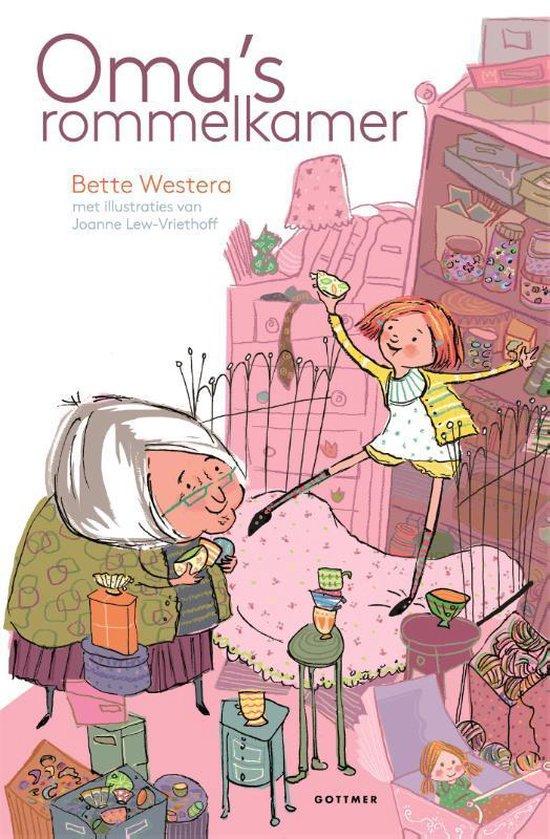Grandma’s Junk Room
Grandma is becoming forgetful and this is really upsetting her, partly because her daughter keeps confronting her about it. After a broken leg and a period of considerable resistance from both grandmother and granddaughter, Grandma ends up in the Rozengaarde old folks’ home. Sofia finds this hard to come to terms with, but realises that it doesn’t mean the end of her warm relationship with her grandmother.

Grandma is becoming forgetful and this is really upsetting her, partly because her daughter keeps confronting her about it. After a broken leg and a period of considerable resistance from both grandmother and granddaughter, Grandma ends up in the Rozengaarde old folks’ home. Sofia finds this hard to come to terms with, but realises that it doesn’t mean the end of her warm relationship with her grandmother.
The box full of memories that Sofia has ‘rescued’ from her grandmother’s house forms a bridge between the past and Grandma’s new life. Westera has Sofia get to know other residents of Rozengaarde so that we as readers, and Sofia herself, are prepared for the fact that a relationship is still possible even if the situation worsens. One of Sofia’s observations is indicative of the tone of the book: ‘The more things you forget, the more surprises you have.’ Sofia’s mother doesn’t come out of the book very well.
She doesn’t understand much about either her own mother or her daughter. Most of all she wants to ‘sort everything out properly’, which actually means walking all over other people’s feelings. Fortunately, Sofia’s father has more understanding of the fact that ‘forgetting’ is a relative concept and that it can actually have its good points when things don’t go entirely according to plan. Westera writes sincerely, with original observations and humour. Her vivid writing style ensures that every reader is perfectly able to imagine his or her own Sofia and Grandma. Oma’s rommelkamer is Bette Westera’s best book yet.
With Grandma's Junk Room she has created an intimate and sensitive book about getting older and about the strong bond between a grandmother and her granddaughter. (…) Westera writes from the heart, with lots of original observations and humour.
Leesgoed
An enjoyable reading book about a lively little girl and a kind grandmother.
Kidsweek Junior
chrisvanhouts.jpg&w=640&q=75)